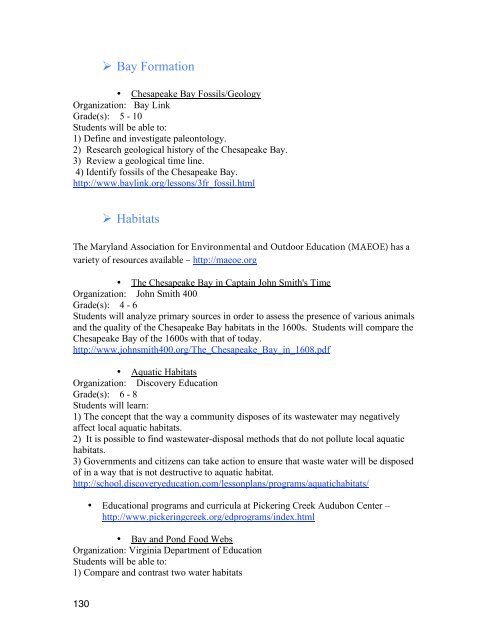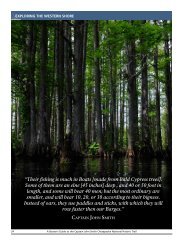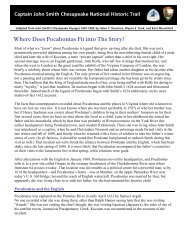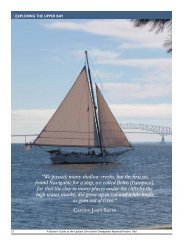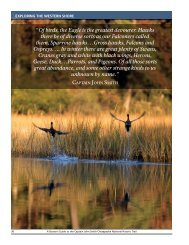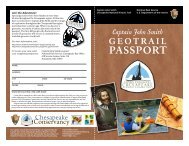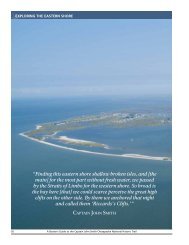Draft Interpretive Plan Join the adventure! - Captain John Smith ...
Draft Interpretive Plan Join the adventure! - Captain John Smith ...
Draft Interpretive Plan Join the adventure! - Captain John Smith ...
Create successful ePaper yourself
Turn your PDF publications into a flip-book with our unique Google optimized e-Paper software.
Bay Formation<br />
• Chesapeake Bay Fossils/Geology<br />
Organization: Bay Link<br />
Grade(s): 5 - 10<br />
Students will be able to:<br />
1) Define and investigate paleontology.<br />
2) Research geological history of <strong>the</strong> Chesapeake Bay.<br />
3) Review a geological time line.<br />
4) Identify fossils of <strong>the</strong> Chesapeake Bay.<br />
http://www.baylink.org/lessons/3fr_fossil.html<br />
Habitats<br />
The Maryland Association for Environmental and Outdoor Education (MAEOE) has a<br />
variety of resources available – http://maeoe.org<br />
• The Chesapeake Bay in <strong>Captain</strong> <strong>John</strong> <strong>Smith</strong>'s Time<br />
Organization: <strong>John</strong> <strong>Smith</strong> 400<br />
Grade(s): 4 - 6<br />
Students will analyze primary sources in order to assess <strong>the</strong> presence of various animals<br />
and <strong>the</strong> quality of <strong>the</strong> Chesapeake Bay habitats in <strong>the</strong> 1600s. Students will compare <strong>the</strong><br />
Chesapeake Bay of <strong>the</strong> 1600s with that of today.<br />
http://www.johnsmith400.org/The_Chesapeake_Bay_in_1608.pdf<br />
• Aquatic Habitats<br />
Organization: Discovery Education<br />
Grade(s): 6 - 8<br />
Students will learn:<br />
1) The concept that <strong>the</strong> way a community disposes of its wastewater may negatively<br />
affect local aquatic habitats.<br />
2) It is possible to find wastewater-disposal methods that do not pollute local aquatic<br />
habitats.<br />
3) Governments and citizens can take action to ensure that waste water will be disposed<br />
of in a way that is not destructive to aquatic habitat.<br />
http://school.discoveryeducation.com/lessonplans/programs/aquatichabitats/<br />
• Educational programs and curricula at Pickering Creek Audubon Center –<br />
http://www.pickeringcreek.org/edprograms/index.html<br />
• Bay and Pond Food Webs<br />
Organization: Virginia Department of Education<br />
Students will be able to:<br />
1) Compare and contrast two water habitats<br />
130


